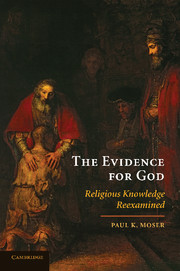1 - Nontheistic Naturalism
Published online by Cambridge University Press: 05 June 2012
Summary
“I think that sometimes, out of the corner of an eye, ‘at the moment which is not of action or inaction’, one can glimpse the true scientific vision; austere, tragic, alienated, and very beautiful. A world that isn't for anything; a world that is just there.”
– Jerry Fodor 1998, p. 169.Many philosophers, among others, have appealed to the sciences as a basis for challenging either the truth or the rationality of belief that God exists. We shall explore whether this common strategy actually succeeds in its challenge. Jerry Fodor elaborates on “the true scientific vision” in connection with biology, as follows: “All that happens is this: microscopic variations cause macroscopic effects, as an indirect consequence of which sometimes the variants proliferate and sometimes they don't. That's all there is; there's a lot of ‘because’ out there, but there isn't any ‘for’” (1998, p. 168). “The true scientific vision” therefore denies that there is a purposive God or a purposive Mother Nature, or a purposive anything else, for that matter. If we return to the wilderness parable of the Introduction, we would identify “the true scientific vision” as entailing that a purposive rescuer is not part of the true scenario at all, for better or worse. Many would dare to suggest that this is, indeed, for the worse when one is lost deep in a wilderness canyon. Even so, “the true scientific vision” merits our attention now.
- Type
- Chapter
- Information
- The Evidence for GodReligious Knowledge Reexamined, pp. 46 - 87Publisher: Cambridge University PressPrint publication year: 2009



